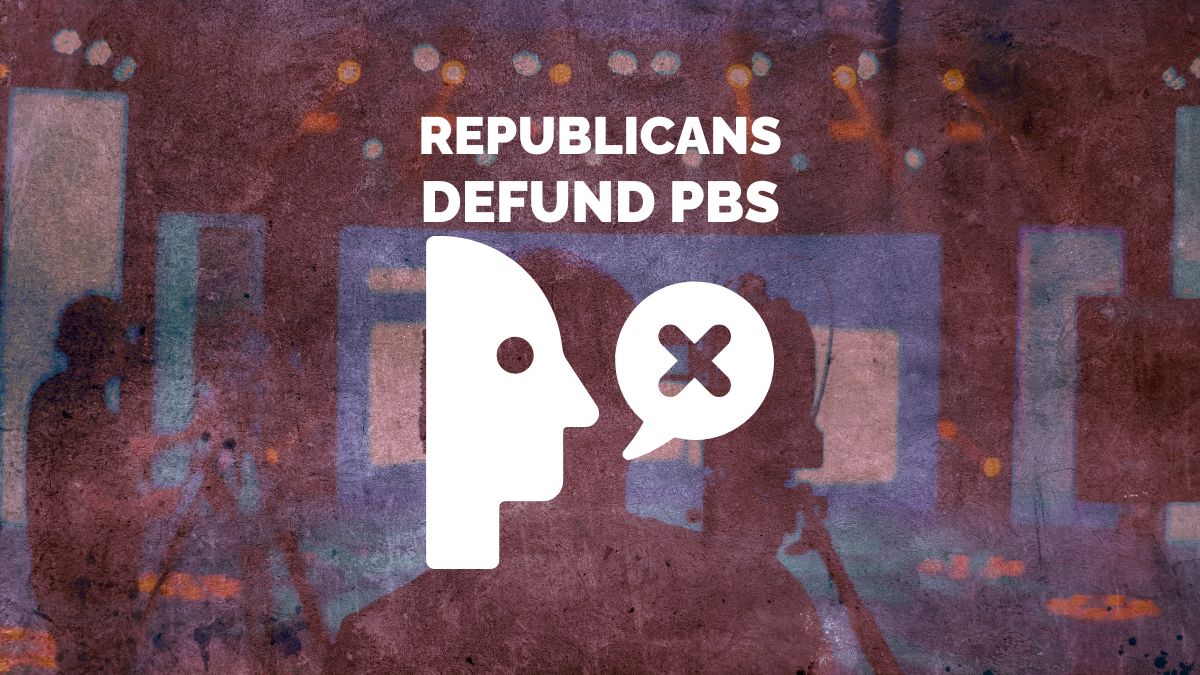This month, Republicans in Congress approved Trump’s plan to rescind $1.1 billion from the Corporation for Public Broadcasting, which was meant to fund the corporation for the next two years. This affects networks like National Public Radio (NPR) and Public Broadcasting System (PBS) and their family stations.
The Senate voted on the measure and approved mostly along party lines, with all Democratic Senators voting against it and all but two Republican senators voting for it. The House vote was similar, with all Democrats voting against the measure and all but two Republicans voting in favor of it.
After the vote, the CEO of NPR, Katherine Maher, called the legislation an “irreversible loss” to the public radio system.
“Public funding has enabled the flourishing of a uniquely American system of unparalleled cultural, informational, and educational programming, and ensured access to vital emergency alerting and reporting in times of crisis — all for about $1.60 per American, every year. Parents and children, senior citizens and students, tribal and rural communities — all will bear the harm of this vote,” Maher said.
North Carolina is home to 12 PBS television stations and nine NPR stations. Many of the stations produce content that covers U.S. and world news, with topics ranging from politics, weather, health, science, business, arts, and culture. They also provide services such as educational content, important public safety communications during natural disasters, professional development and resources for teachers, music and cultural programming, unparalleled local news, and more, according to the American Coalition for Public Radio.
David Crabtree, the CEO of PBS North Carolina, said the funding cuts would severely impact the services they provide.
“This funding is critical to the essential services we provide every day, such as delivering emergency communications across the state, educational programming and resources, and the local and national programs our viewers depend on,” Crabtree explained.
You can read the article Crabtree published in the News and Observer on the matter here.
The argument from Republicans has been that these stations have a political bias, one that does not align with the agenda of Trump and the Republican Party. Republican state Senators are also eyeing similar cuts, looking to remove $4 million in funding to PBS from the state’s budget. Though Republicans believe the stations are biased, Paul Hunton, the president of North Carolina Public Radio WUNC, believes differently.
“If you look at anything that WUNC does that is generated from our newsroom, you will see nothing but fair and objective journalism helping North Carolinians understand the communities that they live in, the state that they live in, and decisions that are being made at the legislature and other places on their behalf,” Hunton told ABC 11.
Rural areas could be deeply affected
The rescinding of funds for the public radio system is also sounding alarms for rural communities across the country. In North Carolina, internet service in rural areas can be limited, and even more so when natural disasters interfere, leaving public broadcasting networks as one of the few reliable sources for information during those times.
Congressional member Alma Adams (NC-12) pointed to the important role these networks played after Hurricane Helene devastated Western North Carolina, calling them a lifeline.
“Local public broadcasting was a lifeline to my state during Hurricane Helene. When power, internet, and cell service failed, thousands of North Carolinians received lifesaving updates from public radio, including emergency resource information, road closures, and live briefings from county officials,” Adams said. “Without their work, more people would have needlessly lost their lives from this disaster. Republicans’ decision to defund public broadcasting today only serves to abandon communities facing natural disasters in the future, especially rural Americans, and they should be ashamed.”
Adams, alongside Representatives Deborah Ross (NC-02), Valerie Foushee (NC-04), and Don Davis (NC-01), wrote a letter to congressional leaders explaining the significance of the networks during such crucial times.
You can read more about the consequences of the bill and ways to take action at Protect My Public Media.





